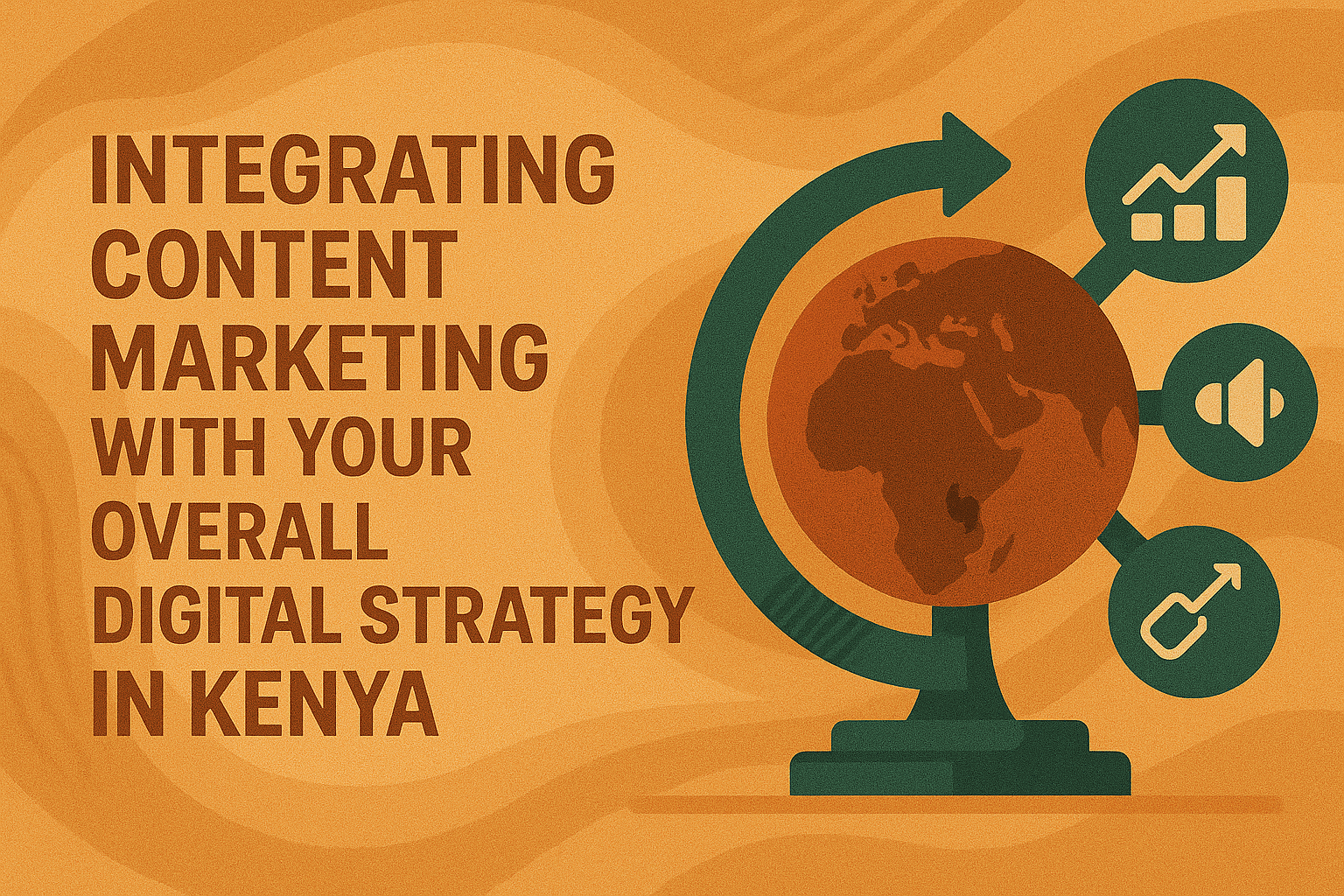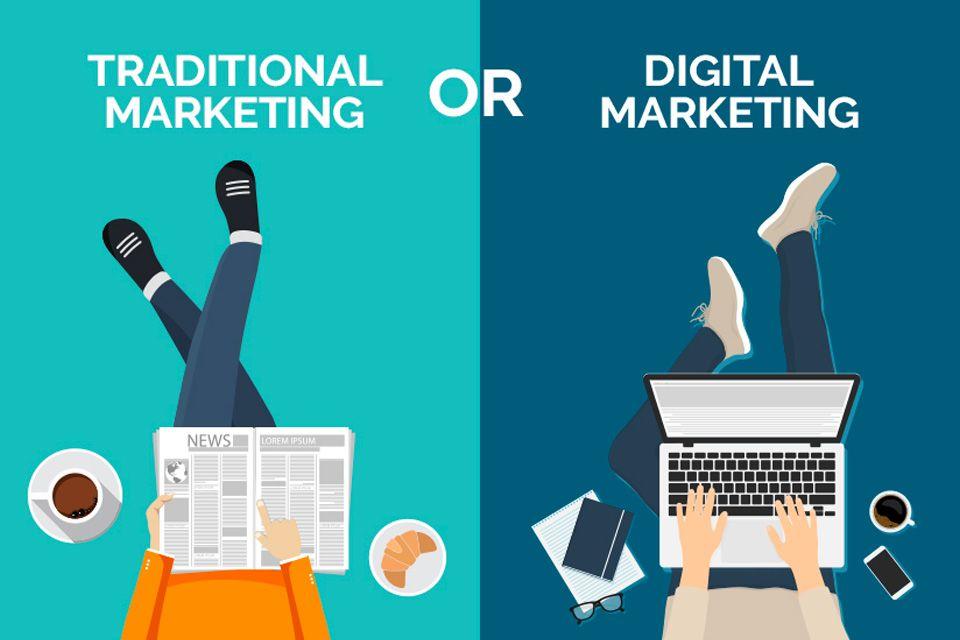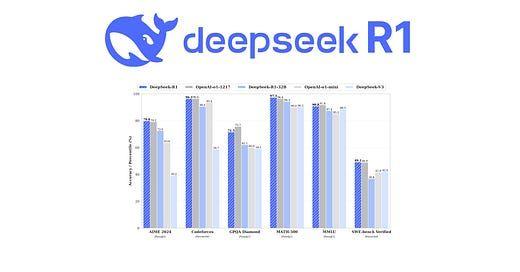
Rosemary Kiriro
Shiftpulse Marketers
TL;DR: Kenyan businesses must integrate traditional and digital marketing for maximum impact. Traditional methods like print, broadcast, and outdoor ads remain relevant, but digital channels such as social media, SEO, content marketing, and PPC drive engagement. A hybrid approach ensures consistent branding, personalized experiences, and measurable results
Bridging the Gap: Merging Traditional and Digital Marketing for Maximum Impact
In today's dynamic business landscape, Kenyan businesses face the challenge of reaching their target audience effectively in a rapidly evolving media environment. While traditional marketing methods still hold value, the rise of digital marketing has opened up new avenues for reaching and engaging consumers. To maximize marketing ROI, Kenyan businesses need to adopt a hybrid approach that seamlessly integrates traditional and digital strategies. This article explores the evolving marketing landscape in Kenya and provides a comprehensive guide for businesses seeking to bridge the gap between traditional and digital marketing for maximum impact.
Traditional Marketing in Kenya: A Foundation to Build Upon
Traditional marketing methods have long been the cornerstone of marketing efforts in Kenya. These methods encompass a range of strategies, including:
- Print Advertising: Newspapers, magazines, brochures, and flyers remain prevalent, especially for reaching specific demographics and local communities1.
- Broadcast Media: Television and radio continue to have a broad reach, particularly in areas with limited internet access2.
- Outdoor Advertising: Billboards, signage, and transit advertising offer high visibility in urban areas and along major transportation routes3.
While these traditional methods still hold relevance, their effectiveness is being challenged by the rise of digital channels.
Strengths of Traditional Marketing in Kenya:
- Wide Reach: Traditional media, such as television and radio, can reach a large audience, making it effective for building brand awareness4.
- Credibility: Advertising in established newspapers or magazines can lend credibility to a brand4.
- Tangibility: Physical marketing materials, like brochures, can create a lasting impression and provide a tangible representation of the brand1.
Weaknesses of Traditional Marketing in Kenya:
- High Costs: Traditional media advertising can be expensive, especially for prime time slots or prominent placements4.
- Limited Targeting: Reaching specific audience segments can be challenging with traditional methods, leading to wasted resources6.
- Difficult to Measure: Assessing the effectiveness of traditional campaigns can be challenging, making it difficult to optimize ROI4.
The Rise of Digital Marketing in Kenya
Kenya has witnessed a significant increase in internet and mobile phone penetration in recent years. According to recent statistics, Kenya has 17.86 million internet users, representing 32.7% of the total population. This represents an 8% year-on-year increase in internet users7. This growth is fueled by increasing access to affordable mobile devices and expanding internet infrastructure. The African Continental Free Trade Area (AfCFTA) further contributes to this growth by creating new markets and connecting consumers across Africa, leading to lower transaction costs and reduced information asymmetry8. This has led to a surge in digital marketing adoption, with businesses leveraging online channels to reach and engage their target audience.
Key Digital Marketing Channels for Kenyan Businesses:
- Social Media Marketing: Platforms like Facebook, Instagram, and Twitter are widely used in Kenya, providing opportunities for targeted advertising and community building9.
- Search Engine Optimization (SEO): Optimizing websites and content for search engines like Google is crucial for attracting organic traffic and increasing online visibility10.
- Content Marketing: Creating valuable and relevant content, such as blog posts, articles, and videos, can attract and engage potential customers10.
- Email Marketing: Building an email list and sending targeted email campaigns can nurture leads and drive conversions9.
- Pay-Per-Click (PPC) Advertising: Running targeted ads on search engines and social media platforms can generate immediate traffic and leads11.
- Online Brand Assets: Utilizing online brand assets such as logos, online brochures, and PDFs can enhance brand visibility and provide readily accessible information to customers12.
- Mobile Optimization: Given the high mobile penetration in Kenya, optimizing websites and digital content for mobile devices is essential for reaching and engaging users10.
Integrating Digital and Traditional Marketing: A Synergistic Approach
Rather than viewing traditional and digital marketing as separate entities, Kenyan businesses should strive to integrate these approaches to create a cohesive marketing strategy. This involves aligning messaging, branding, and customer experience across all channels11. In the Kenyan market, where consumer preferences are diverse and rapidly changing, integrated marketing is crucial for maximizing reach and staying competitive11.
Strategies for Effective Integration:
- Use Traditional Marketing to Drive Digital Engagement: Include QR codes, social media handles, and website URLs in print ads, brochures, and outdoor advertising to encourage customers to connect online. For example, a retail store can print a QR code on its flyers that customers can scan to access exclusive online discounts or follow the store's social media pages.
- Leverage Digital Channels to Enhance Traditional Campaigns: Promote television or radio campaigns on social media and through email marketing to extend their reach and impact. For instance, a company running a radio ad can create social media posts with snippets of the ad and links to their website or landing page for more information.
- Create Consistent Brand Messaging: Ensure that brand messaging and visuals are consistent across both traditional and digital platforms to reinforce brand identity. This includes using the same logo, color scheme, and tone of voice in all marketing materials.
- Personalize Customer Experiences: Use data gathered from digital channels to personalize traditional marketing efforts, such as direct mail campaigns. For example, a business can use data from its email marketing campaigns to segment customers and send personalized postcards with tailored offers.
- Track and Measure Results: Implement tracking mechanisms to measure the effectiveness of both traditional and digital campaigns and identify areas for optimization. This can involve using unique URLs for different campaigns, tracking website traffic from different sources, and analyzing customer response rates.
Examples of Successful Integration in Kenya:
- A local restaurant uses social media to promote its weekly specials advertised in local newspapers, driving both online and offline traffic.
- A retail store includes a QR code on its in-store signage that customers can scan to access exclusive online discounts.
- A bank runs a television campaign promoting a new financial product and directs viewers to its website for more information and online applications.
Content Marketing for Integrated Campaigns
Creating high-quality content is essential for successful integrated marketing campaigns. This content can be used to attract and engage potential customers, provide valuable information, and drive traffic to both online and offline channels1.
Types of Content to Create:
- Blog posts: Share informative and engaging articles related to your industry and business.
- Articles: Publish in-depth pieces on relevant topics to establish thought leadership.
- Infographics: Present data and information visually to enhance understanding and engagement.
- Videos: Create engaging video content that showcases your products or services and tells your brand story.
Publishing and Promoting Content:
- Publish content on your website and other relevant online platforms, such as industry blogs and social media.
- Promote your content through social media posts, email marketing campaigns, and online advertising1.
- Use social media to share snippets of your blog posts and link to the full article on your website.
- Include links to your content in your email newsletters and social media profiles.
Measuring the Effectiveness of Hybrid Marketing Campaigns
To ensure the success of a hybrid marketing approach, it's crucial to track and analyze key metrics from both traditional and digital channels. This data-driven approach allows businesses to assess overall campaign performance and make informed decisions for optimization11. To effectively measure marketing effectiveness, it's important to analyze the interplay between various metrics, such as conversion rates, engagement metrics, revenue growth, and customer retention rates14. Gartner presents a hierarchy of marketing metrics, a structured approach to evaluating marketing effectiveness by considering metrics at different levels, including activity, operational, outcome, and business metrics14.
Key Metrics to Track:
Channel
Metrics
Traditional Marketing
Reach (estimated audience size), Frequency (number of exposures), Brand Recall (surveys, customer feedback), Response Rate (coupons redeemed, inquiries received)
Digital Marketing
Website Traffic (unique visitors, page views), Conversion Rates (leads generated, sales made), Engagement Metrics (likes, shares, comments), Social Media Reach (followers, impressions), Email Open and Click-Through Rates
By analyzing these metrics, businesses can gain insights into which channels are performing best, identify areas for improvement, and allocate marketing budget effectively. It's crucial to analyze the combined data from both traditional and digital channels to gain a comprehensive view of marketing performance and understand how different channels contribute to overall success15.
The Importance of Data-Driven Decision Making
Data-driven decision making is paramount in optimizing hybrid marketing campaigns. By collecting and analyzing data from various sources, businesses can gain a deeper understanding of customer behavior, preferences, and campaign performance16.
Benefits of Data-Driven Decision Making:
- Improved Targeting: Data insights enable businesses to target specific customer segments with tailored messaging and offers16.
- Enhanced Customer Experience: Understanding customer preferences allows businesses to personalize interactions and create more relevant experiences16.
- Increased ROI: Data analysis helps identify the most effective marketing channels and optimize campaigns for maximum return on investment17.
- Competitive Advantage: Data-driven insights enable businesses to stay ahead of the competition and adapt to changing market trends16.
Data analysis can also help identify which platforms are driving the most conversions and engagement, allowing businesses to allocate resources effectively. For example, if data shows that social media campaigns are generating more leads than print advertising, a business can adjust its budget accordingly to maximize ROI18.
Shiftpulse Marketers: Your Partner in Integrated Marketing
Shiftpulse Marketers understands the unique challenges and opportunities facing Kenyan businesses in today's digital age. We specialize in developing and implementing integrated marketing strategies that combine the strengths of traditional and digital channels to achieve your business objectives. It is important to understand the specific cultural and economic context of the Kenyan market when developing these strategies1. Our approach is tailored to the unique needs of Kenyan businesses, taking into account the diverse consumer preferences, the growing digital landscape, and the specific challenges and opportunities within different industries.
Our Approach:
- Tailored Solutions: We develop customized marketing plans that align with your specific business goals, target audience, and industry.
- Data-Driven Strategies: We leverage data analytics to inform our strategies and ensure maximum effectiveness.
- Creative Content: We create engaging and informative content that resonates with your target audience across various platforms.
- Performance Tracking: We provide regular performance reports and analysis to track progress and optimize campaigns.
To further support Kenyan businesses in their integrated marketing journey, Shiftpulse Marketers is hosting a workshop/webinar titled "Bridging the Gap: Merging Traditional and Digital Marketing for Maximum Impact." This interactive session will provide attendees with actionable strategies and insights to effectively integrate traditional and digital marketing efforts.
Workshop/Webinar: Bridging the Gap: Merging Traditional and Digital Marketing for Maximum Impact
Workshop/Webinar Agenda:
Time
Topic
Activities
10:00 - 10:15 AM
Welcome and Introduction
Introduction of Shiftpulse Marketers and the workshop objectives.
10:15 - 11:00 AM
The Evolving Marketing Landscape in Kenya
Presentation on the current state of traditional and digital marketing in Kenya, including key trends and challenges.
11:00 - 11:45 AM
Integrating Traditional and Digital Strategies
Interactive discussion on practical strategies for integrating traditional and digital marketing efforts, with real-world examples and case studies.
11:45 - 12:30 PM
Measuring Hybrid Marketing Effectiveness
Presentation on key metrics to track and analyze, with a focus on data-driven decision making.
12:30 - 1:15 PM
Q&A and Panel Discussion
Open forum for questions and answers, with a panel of industry experts and successful Kenyan business owners sharing their insights.
1:15 - 1:30 PM
Closing Remarks and Next Steps
Summary of key takeaways and information on how to connect with Shiftpulse Marketers for further assistance.
Promoting the Workshop/Webinar:
To ensure maximum participation, the workshop/webinar will be promoted through various channels, including social media marketing, email marketing, partnerships with relevant organizations, and website promotion19.
Conclusion
In conclusion, Kenyan businesses need to embrace a hybrid approach to marketing that seamlessly integrates traditional and digital strategies. By understanding the strengths and weaknesses of each approach, businesses can create a cohesive marketing strategy that maximizes reach, engagement, and ROI. Shiftpulse Marketers is committed to helping Kenyan businesses navigate this evolving landscape and achieve their marketing goals through data-driven, integrated marketing solutions. Our expertise in data-driven strategies and creative content creation makes us the ideal partner for Kenyan businesses seeking to integrate their marketing efforts and thrive in the dynamic Kenyan market.
Works cited
1. Kenya - Selling Factors and Techniques, accessed January 23, 2025, https://www.trade.gov/country-commercial-guides/kenya-selling-factors-and-techniques
2. Kenya - Trade Promotion and Advertising | Privacy Shield, accessed January 23, 2025, https://www.privacyshield.gov/ps/article?id=Kenya-trade-promotion-and-advertising
3. traditional-marketing - Dapin Edu, accessed January 23, 2025, https://dapineducation.co.ke/traditional-marketing
4. The Ultimate Showdown: Traditional Marketing Vs Digital Marketing, accessed January 23, 2025, https://tabaladigital.co.ke/blog/the-ultimate-showdown-traditional-marketing-vs-digital-marketing
5. Traditional Marketing : Meaning, Importance, Channels, Advantages and Disadvantages, accessed January 23, 2025, https://www.geeksforgeeks.org/traditional-marketing-meaning-importance-channels-advantages-and-disadvantages/
6. Pros and Cons of Traditional Marketing and Digital Marketing, accessed January 23, 2025, https://tedigitalmarketing.com/digital-marketing/pros-and-cons-of-traditional-marketing-and-digital-marketing/
7. Kenya's Digital Advertising Landscape - Ipsos, accessed January 23, 2025, https://www.ipsos.com/en-ke/kenyas-digital-advertising-landscape
8. Digital Trade Developments in Kenya: Perspective under AfCFTA - tralac trade law centre, accessed January 23, 2025, https://www.tralac.org/blog/article/15850-digital-trade-developments-in-kenya-perspective-under-afcfta.html
9. Digital Marketing in Kenya: The Ultimate Guide (2025) | Creative Kigen, accessed January 23, 2025, https://creativekigen.com/digital-marketing-in-kenya-the-ultimate-guide-2019/
10. E-commerce in Kenya:Digital Marketing Strategies - TAGiAfrica, accessed January 23, 2025, https://www.tagi.africa/digital-marketing-strategies-4-e-commerce-in-kenya/
11. Integrated Marketing Strategies for Kenyan Businesses, accessed January 23, 2025, https://kwetumarketingagency.co.ke/integrated-marketing-strategies-for-kenyan-businesses/
12. Digital Marketing in Kenya For Business – The Ultimate Guide, accessed January 23, 2025, https://tpmediamarketing.com/digital-marketing-in-kenya/
13. Digital Marketing Integration into Traditional Marketing - Simon Page College of Marketing, accessed January 23, 2025, https://www.simonpage.ac.ke/digital-marketing/digital-marketing/
14. improvado.io, accessed January 23, 2025, https://improvado.io/blog/measure-improve-marketing-effectiveness#:~:text=Common%20indicators%20of%20marketing%20effectiveness,approach%20to%20evaluating%20marketing%20effectiveness.
15. How to Measure Marketing Effectiveness: A Comprehensive Guide - Improvado, accessed January 23, 2025, https://improvado.io/blog/measure-improve-marketing-effectiveness
16. Why Data-Driven Decision Making is Crucial for Effective Marketing - Sweephy, accessed January 23, 2025, https://www.sweephy.com/blog/why-data-driven-decision-making-is-crucial-for-effective-marketing
17. The Impact of Data-Driven Decision Making in Marketing - Lucent Innovation, accessed January 23, 2025, https://www.lucentinnovation.com/blogs/it-insights/data-driven-decision-making-dddm-in-marketing
18. Data-Driven Decision Making in Digital Marketing - barqar, accessed January 23, 2025, https://www.barqar.com/2024/01/02/data-driven-decision-making-digital-marketing/
19. How to Promote a Webinar: A Step-by-Step Guide 2025 - WebinarNinja, accessed January 23, 2025, https://webinarninja.com/blog/how-to-promote-a-webinar/
20. 17 Winning Webinar Promotions to Fill Every Virtual Seat - MailerLite, accessed January 23, 2025, https://www.mailerlite.com/blog/easy-tactics-to-promote-webinars




![Top 10 Digital Marketing Agencies in Kenya [2025 Rankings]](/_next/image?url=https%3A%2F%2Fcdn.sanity.io%2Fimages%2Fvhsaz9nz%2Fproduction%2Fe391482b6038dfd55aa53b9fbe32c8a798503629-500x500.png&w=3840&q=75)








